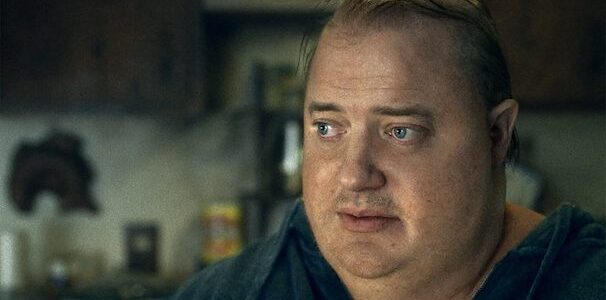
ReelBob: ‘The Whale’ ★★★
By Bob Bloom
Before you even see Charlie, you hear his voice. He sounds empathetic, encouraging, soothing yet firm.
Charlie teaches an online course in creative writing, but never allows his students to see him, telling them that his computer camera is broken.
He is actually a recluse never leaving his house. And when we first see him, we understand why.
Charlie, portrayed by Brendan Fraser, is severely obese. And he is the subject of “The Whale,” director Darren Aronofsky’s study of an individual’s attempts at redemption.
Years earlier, Charlie abandoned his wife and daughter after he fell in love with a man, who has since died. Liz (Hong Chau), a nurse who takes care of Charlie, is the sister of his late lover.
Aronofsky balances compassion with theatricality, which is understandable because the movie is based on a play by Samuel D. Hunter, who adapted his work for the screen.
The movie is driven by Fraser’s courageous performance as a broken man, slowly and surreptitiously eating himself to death, despite the efforts of others — most notably Liz — to support and, at times, him.
Fraser’s soft voice and sad eyes display a man tired of life. Yet, he badly wants to make amends with those he loves, especially his daughter, Ellie, fiercely portrayed by Sadie Sink.
When Ellie visits Charlie, she is merciless in her verbal abuse. Charlie ignores the wounding words and continually reassures her of his love, just as he fails to heed Liz’s stern warnings about his dietary habits.
At times, “The Whale” can seemingly be exploitive and calculating. At various points, Aronofsky lingers too long on Charlie’s physical condition as if to dwell upon his otherness.
Fraser touches your emotions. Whatever your opinions of the choices Charlie has made, he is not a bad man. He is very self-aware of the people he has hurt — Ellie, Liz and his former wife, Mary (Samantha Morton). Charlie’s goal is to leave the world with a clean slate.
Fraser nearly makes you forget his transformative prosthetics, portraying a flawed individual who only wants to help heal those dearest to him.
Charlie is not seeking forgiveness for himself nor from others. He merely provides understanding and tenderness, for which he dollops out generous portions.
“The Whale” is an uncomfortable experience. When you watch Charlie, you feel a bit guilty because his size makes you feel like a gawker or an intruder.
And Aronofsky adds to that by his unsubtle approach to the movie. He wants you to accept and embrace Charlie and uses every trick in his cinematic arsenal to achieve his goal.
In the end, “The Whale” is devastating and heartbreaking. The movie stands on Fraser’s shoulders, and he carries it without bending nor breaking.
I am a founding member of the Indiana Film Journalists Association. I review movies, 4K UHD, Blu-rays and DVDs for ReelBob (ReelBob.com), The Film Yap and other print and online publications. I can be reached by email at bobbloomjc@gmail.com. You also can follow me on Twitter @ReelBobBloom and on Facebook at ReelBob.com or the Indiana Film Journalists Association. My movie reviews also can be found at Rotten Tomatoes: www.rottentomatoes.com.
THE WHALE
3 stars out of 4
(R), language, drug use, sexual content